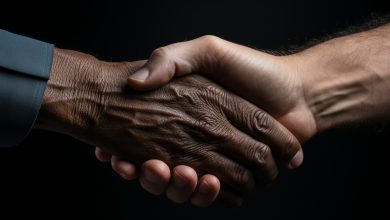
The Art of Apologizing: Repairing Relationships Through Effective Communication
Do you ever find it difficult to apologize? You’re not alone. But here’s the thing: apologizing is a crucial skill for repairing relationships and fostering effective communication.
In this article, we’ll explore the art of apologizing and how it can help you restore trust and rebuild those important connections.
By recognizing and acknowledging your mistakes, crafting a genuine and sincere apology, and employing effective communication strategies, you can mend fences and create stronger bonds with others.
Understanding the Importance of Apologizing

To repair damaged relationships effectively, it’s crucial that you understand the importance of apologizing. Apologizing isn’t just a simple act of saying sorry; it goes beyond that. It’s about acknowledging the hurt you have caused, taking responsibility for your actions, and showing genuine remorse.
Apologizing allows you to bridge the gap between you and the person you have hurt. It shows that you value the relationship and are willing to make amends. By offering a sincere apology, you open up the opportunity for healing and rebuilding trust.
Understanding the importance of apologizing also means recognizing that it isn’t a sign of weakness, but rather a sign of strength. It takes courage to admit when you have made a mistake and to face the consequences. Apologizing demonstrates humility and a willingness to learn and grow from your actions.
Moreover, apologizing can have a profound impact on your own personal growth. It teaches you to be more self-aware, to reflect on your behavior, and to consider the impact of your actions on others. By understanding the importance of apologizing, you can develop stronger relationships, foster better communication, and create a more harmonious environment for yourself and those around you.
Recognizing and Acknowledging Mistakes

Recognizing and acknowledging your mistakes is an essential step in repairing damaged relationships effectively. It takes courage and humility to face your shortcomings, but doing so is crucial for rebuilding trust and repairing the emotional bonds that have been strained.
Here are four reasons why recognizing and acknowledging your mistakes is so important:
1. Validation of feelings: When you acknowledge your mistakes, you validate the emotions of the person you have hurt. It shows that you understand the impact of your actions and that you genuinely care about their feelings.
2. Creating a safe space: Recognizing your mistakes fosters an environment where open and honest communication can thrive. It allows the other person to feel safe expressing their emotions and concerns, knowing that you’re willing to listen and take responsibility.
3. Building trust: By acknowledging your mistakes, you demonstrate integrity and honesty. This builds trust with the person you have hurt, as they see that you’re willing to hold yourself accountable for your actions.
4. Opening the door for forgiveness: When you take ownership of your mistakes, it paves the way for forgiveness. It shows that you’re genuinely sorry and willing to make amends, which can lead to healing and the restoration of the relationship.
Crafting a Genuine and Sincere Apology

Crafting a genuine and sincere apology allows you to truly express your remorse and take responsibility for your actions, deepening the process of repairing the damaged relationship. When you apologize, it’s important to convey your genuine regret for the hurt you have caused. This means acknowledging the impact of your actions and showing empathy towards the other person’s feelings. By doing so, you validate their emotions and demonstrate that you understand the pain you have caused.
A sincere apology also involves accepting responsibility for your actions without making excuses or shifting blame. It requires you to be accountable for your behavior and the consequences that resulted from it. Taking ownership of your mistakes shows that you’re willing to learn from them and take steps to prevent similar situations from occurring in the future.
Furthermore, a genuine apology requires a commitment to change. It isn’t enough to simply say sorry; you must also demonstrate through your actions that you’re actively working towards personal growth and positive change. This can involve seeking therapy, attending anger management classes, or implementing healthy coping mechanisms to prevent similar incidents from happening again.
Crafting a genuine and sincere apology is the first step towards repairing a damaged relationship. By expressing your remorse, taking responsibility, and committing to change, you lay the foundation for effective communication and rebuilding trust.
In the next section, we’ll explore effective communication strategies for apologizing that can further strengthen the process of healing and reconciliation.
Effective Communication Strategies for Apologizing

By actively listening and showing empathy, you can effectively communicate your sincere apology and begin the process of repairing the damaged relationship. Effective communication is key in this process, as it allows you to convey your remorse and understanding in a way that’s clear and genuine.
Here are four strategies to help you communicate your apology effectively:
1. Be present: Give the person your full attention when they express their feelings. Put away distractions and show that you’re fully engaged in the conversation. This will demonstrate your commitment to understanding their perspective.
2. Use ‘I’ statements: Take responsibility for your actions by using ‘I’ statements instead of deflecting blame. This shows that you acknowledge your part in the situation and are willing to take ownership of your mistakes.
3. Validate their emotions: Show empathy by acknowledging and validating the other person’s feelings. Let them know that you understand how your actions have hurt them and that you genuinely care about their emotions.
4. Avoid justifications or excuses: Resist the temptation to justify or make excuses for your behavior. This will only undermine the sincerity of your apology. Instead, focus on expressing remorse and a genuine desire to make amends.
Restoring Trust and Rebuilding Relationships

To restore trust and rebuild relationships, it is crucial that you consistently demonstrate your commitment to change and actively work towards rebuilding the bond that was broken. Actions speak louder than words, and it is through your actions that you can show the other person that you are genuinely sorry and willing to make amends. Here are some strategies that can help you in this process:
| Actions to Demonstrate Commitment | Actions to Rebuild the Bond |
|---|---|
| Acknowledge your mistakes and take responsibility for your actions | Communicate openly and honestly |
| Show empathy and understanding towards the other person’s feelings | Listen actively and validate their emotions |
| Be patient and give the other person time to heal | Apologize sincerely and without making excuses |
| Make a conscious effort to change your behavior and avoid repeating the same mistakes | Be reliable and follow through on your commitments |
| Seek professional help or counseling if necessary | Be respectful and treat the other person with kindness |
Conclusion
In conclusion, mastering the art of apologizing is crucial for repairing relationships.
Did you know that a study conducted by the University of Michigan found that 81% of individuals believe a sincere apology can restore trust?
By recognizing and acknowledging our mistakes, crafting genuine apologies, and employing effective communication strategies, we can rebuild trust and strengthen our connections with others.
Remember, a heartfelt apology has the power to mend even the most damaged relationships.






